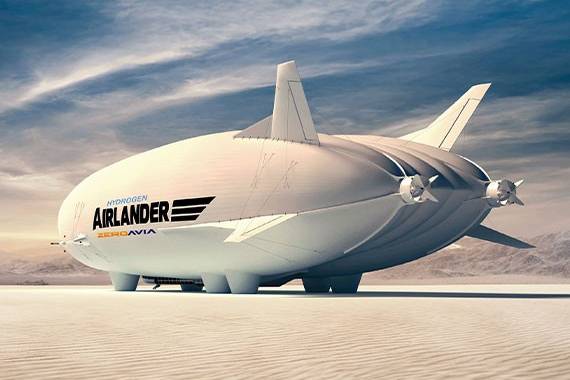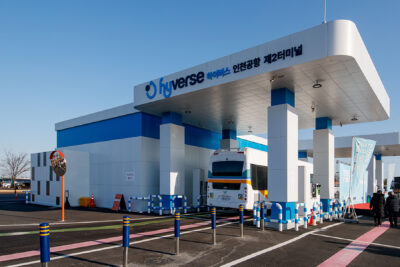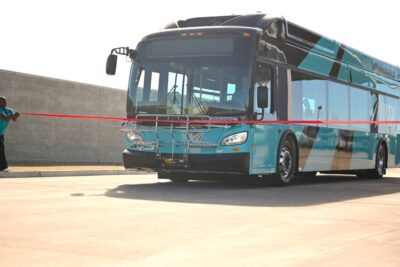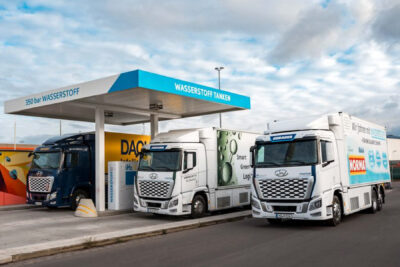ZeroAvia & Hybrid Air Vehicles to cooperate on hydrogen aircraft
The original Airlander 10 is powered by four diesel engines. The integration of ZeroAvia’s hydrogen-electric propulsion system is expected to enable completely emission-free flight operations with more than 100 passengers and reduced maintenance costs.
As part of the agreement, the two companies also intend to investigate the potential applicability of ZeroAvia’s hydrogen-electric propulsion systems to future larger aircraft from Hybrid Air Vehicles and evaluate the planned operation of the Airlander 10 to define the requirements for hydrogen refuelling infrastructure.
The partners have already made some statements about what the aircraft will be like when it is done, featuring a 10 tonne payload and 4,000 nautical mile maximum range. They further calculate that the four diesel engines, which power the Airliner 10, will provide an emissions reduction of about 90 per cent compared to “comparable capacity aircraft.” The hydrogen-electric system will take over once the aircraft is in flight to provide fully emissions-free operations for 100+ passengers.
“ZeroAvia has led the development of hydrogen-electric propulsion systems and made impressive progress commercially, technically and with regulators,” explained Tom Grundy, CEO of Hybrid Air Vehicles. “Our intention has always been to offer our customers a fully zero-emission variant of the Airlander, for efficiency and environmental reasons, and this partnership with ZeroAvia will help us in this direction.”
Val Miftakhov, Founder and CEO of ZeroAvia, further elaborated how the companies plan to leverage their joint capacities to take advantage of further business areas: “Airlander is another exciting airframe for line-fit of our powertrains as it can open up a whole new market in air travel due to its range, efficiency and ability to operate from almost anywhere. Like ZeroAvia, Hybrid Air Vehicles is an aerospace innovator with exciting manufacturing and growth plans for the UK that can deliver hundreds of well-paid jobs in different regions in the UK. These are two businesses expanding UK footprints and manufacturing plans, with a broad array of strong use cases, including in the defence arena.”
This is also not the first decarbonisation initiative for the airship, as in 2019, the UK Aerospace Research and Technology Programme awarded £1 million to Hybrid Air Vehicles, Collins Aerospace and the University of Nottingham to develop a new fully electric propulsor for the Airlander 10 zeppelin.





0 Comments